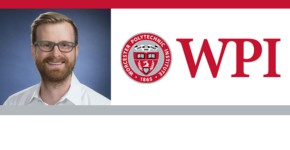 Worcester Polytechnic Institute’s Benefits of Project-Based Learning Week: A capstone project in the arts and humanities fields could have benefits for many types of students.
Worcester Polytechnic Institute’s Benefits of Project-Based Learning Week: A capstone project in the arts and humanities fields could have benefits for many types of students.
Ryan Madan, associate professor of teaching in the humanities and arts department, determines why.
When new acquaintances find out I teach writing, it’s not unusual for them to lament a broad decline in the nation’s writing skills. How does it make me feel, they ask, that students, say, don’t know the difference between adjectives and adverbs? Or, can I believe it that people hardly even know what apostrophes do, let alone where to put them? As someone who treasures good, careful prose, I’m sympathetic to these worries. But as an educator, I think it’s important to steer the conversation in a different direction. What makes us think that students’ knowledge of the parts of speech would “fix” their writing? What assumptions underlie our surety that ignorance of grammar or punctuation is what’s holding students back? That those are the things most important to reviving literate culture? I turn the conversation to these questions because it’s easy to forget that in literacy education, we have choices about what to prioritize. And those choices should rest on careful reflection about what we value (where we want students to end up) and careful interrogation of the assumptions we hold about how students get there.
The Unexpected (and Expected) Benefits of Projects in the Humanities
Project work in one area can have positive crossover effects in other disciplines. The longstanding debate about the value of a liberal arts education has been further sharpened by the current landscape where students and their parents expect a strong return on the immense investment of a college education. This was the debate we explored in a study of alumni from a STEM university in New England.
Using data from a survey of 2,236 alumni, we first examined the impact of a capstone project in a humanities or arts field on several outcomes expected of the liberal arts. For example, we found that on average, alumni indicated that project experiences were influential in enriching their understanding of themselves—about as influential as the courses they took in their major.
Next, we examined whether requiring a capstone project in a humanities or arts field might actually amplify learning of technical skills for engineering students. Alumni indicated the capstone project in a humanities or arts field boosted development of a solid base of knowledge an additional 50% beyond the influence of courses in the major. After controlling for the influences of student demographics and response bias, the experience with this humanities project significantly and positively influenced the extent to which a technical design project in the senior year influenced their lives.
Our evidence suggests that a projects-based humanities and arts curriculum helps students to explore themselves and the human experience, while also equipping them with tools and perspectives to deepen their learning in STEM fields. Long-term, the humanities project significantly improved career preparation, but it also positively influenced experiences that changed students’ plans for their futures. This dual benefit seems critical to the value proposition of higher education for incoming students.
